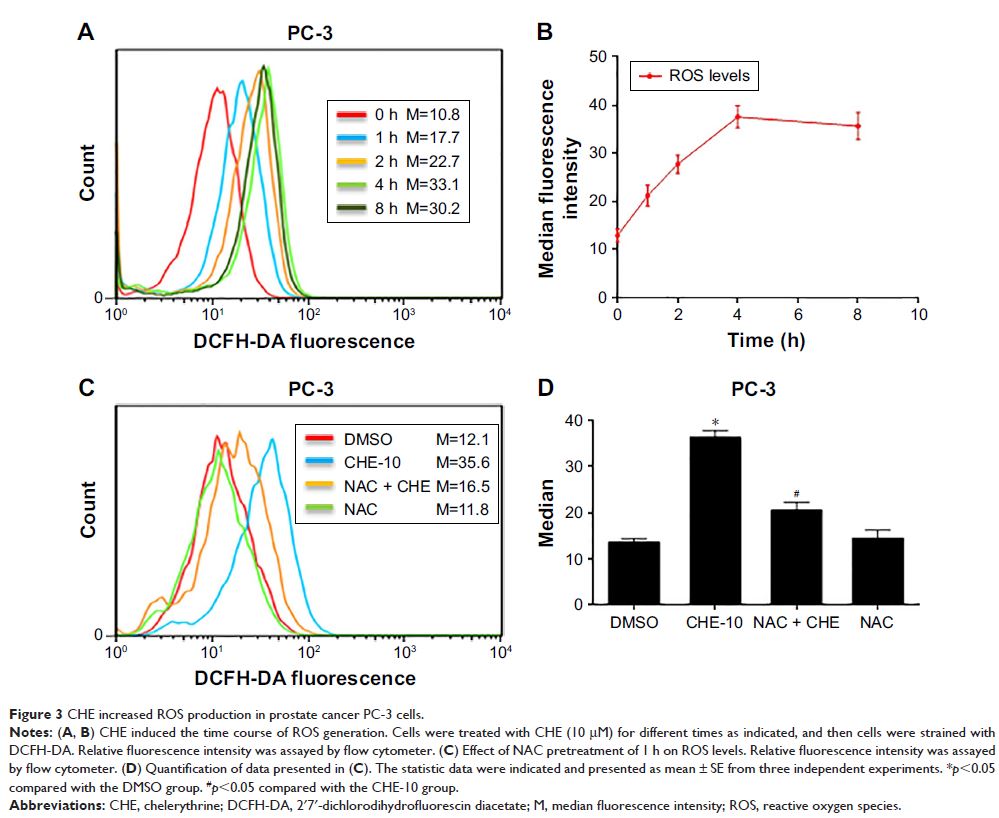108985
论文已发表
注册即可获取德孚的最新动态
IF 收录期刊
- 3.4 Breast Cancer (Dove Med Press)
- 3.2 Clin Epidemiol
- 2.6 Cancer Manag Res
- 2.9 Infect Drug Resist
- 3.7 Clin Interv Aging
- 5.1 Drug Des Dev Ther
- 3.1 Int J Chronic Obstr
- 6.6 Int J Nanomed
- 2.6 Int J Women's Health
- 2.9 Neuropsych Dis Treat
- 2.8 OncoTargets Ther
- 2.0 Patient Prefer Adher
- 2.2 Ther Clin Risk Manag
- 2.5 J Pain Res
- 3.0 Diabet Metab Synd Ob
- 3.2 Psychol Res Behav Ma
- 3.4 Nat Sci Sleep
- 1.8 Pharmgenomics Pers Med
- 2.0 Risk Manag Healthc Policy
- 4.1 J Inflamm Res
- 2.0 Int J Gen Med
- 3.4 J Hepatocell Carcinoma
- 3.0 J Asthma Allergy
- 2.2 Clin Cosmet Investig Dermatol
- 2.4 J Multidiscip Healthc

白屈菜红碱通过人前列腺癌细胞中 ROS 依赖的 ER 应力来诱导细胞死亡
Authors Wu S, Yang Y, Li F, Huang L, Han Z, Wang G, Yu H, Li H
Received 21 November 2017
Accepted for publication 31 January 2018
Published 8 May 2018 Volume 2018:11 Pages 2593—2601
DOI https://doi.org/10.2147/OTT.S157707
Checked for plagiarism Yes
Review by Single-blind
Peer reviewers approved by Dr Manfred Beleut
Peer reviewer comments 3
Editor who approved publication: Dr Yao Dai
Introduction: Prostate
cancer is the most common noncutaneous cancer and the second leading cause of
cancer-related mortality worldwide and the third in USA in 2017. Chelerythrine
(CHE), a naturalbenzo[c]phenanthridine alkaloid, formerly identified as a
protein kinase C inhibitor, has also shown anticancer effect through a number
of mechanisms. Herein, effect and mechanism of the CHE-induced apoptosis via
reactive oxygen species (ROS)-mediated endoplasmic reticulum (ER) stress in
prostate cancer cells were studied for the first time.
Methods: In our present study, we investigated whether CHE induced cell
viability decrease, colony formation inhibition, and apoptosis in a
dose-dependent manner in PC-3 cells. In addition, we showed that CHE increases
intracellular ROS and leads to ROS-dependent ER stress and cell apoptosis.
Results: Pre-treatment with N-acetyl cysteine, an ROS scavenger, totally
reversed the CHE-induced cancer cell apoptosis as well as ER stress activation,
suggesting that the ROS generation was responsible for the anticancer effects
of CHE.
Conclusion: Taken together, our findings support one of the anticancer
mechanisms by which CHE increased ROS accumulation in prostate cancer cells,
thereby leading to ER stress and caused intrinsic apoptotic signaling. The
study reveals that CHE could be a potential candidate for application in the
treatment of prostate cancer.
Keywords: chelerythrine, reactive oxygen species, endoplasmic reticulum
stress, apoptosis, prostate cancer
